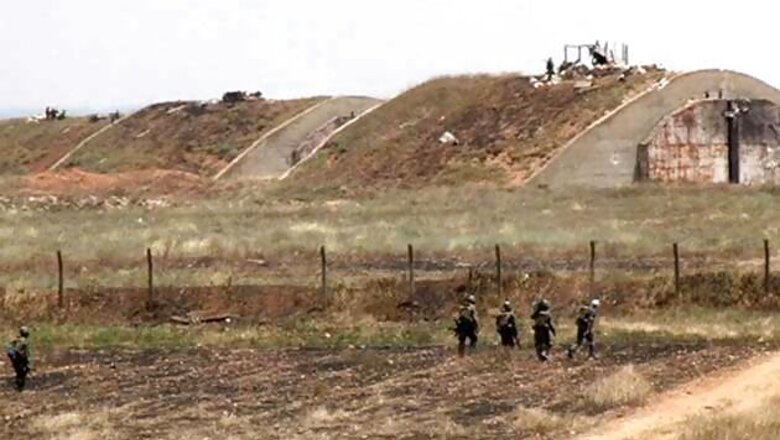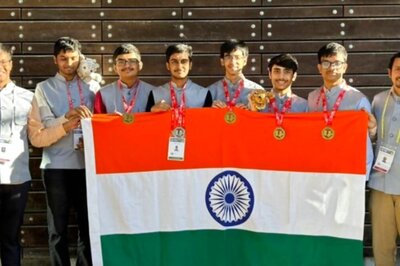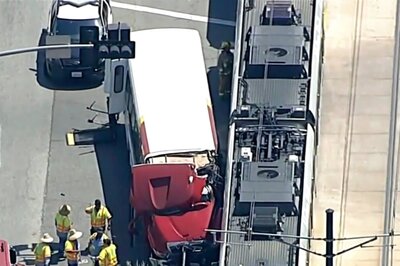
views
Geneva: The United Nations urged Syria on Wednesday to cease heavy weapons attacks on civilians in the rebel-held town of Qusair, in a heated debate that underlined deep divisions among powers even as they seek to convene peace talks in the coming weeks.
The UN Human Rights Council adopted a resolution brought by Qatar, Turkey and the United States, but Damascus and allies Russia and Iran warned that the condemnation could undermine peace efforts to resolve the two-year conflict.
The 47-member Geneva forum voted 36 states in favor, one (Venezuela) against and eight abstentions. Two delegations were absent from the talks while both China and Russia have only observer status.
"This draft resolution can only help prevent preparations for this second (peace) conference," Syria's first secretary Tamim Madani said in a speech ahead of the vote, referring to proposed, but as yet unscheduled, talks set for Geneva.
"Major sponsors of the resolution, of the conference, are suffering from a kind of schizophrenia."
Earlier, Russian Foreign Minister Sergei Lavrov criticized the US-backed draft resolution condemning the Syrian government, saying it was "odious" and would undermine efforts to convene an international peace conference.
Russian ambassador Alexey Borodavkin said that the session was "untimely, counterproductive and likely to complicate the launch of the peace process in Syria."
Iran's delegation said that "one-sided condemnation of the Syrian government, coupled with unconditional support for the opposition, are not conducive to a peaceful settlement but instead embolden the opposition to continue armed struggle."
Halt flow of arms, fighters
UN High Commissioner for Human Rights Navi Pillay urged countries not to supply Syria with weapons and to press both sides to find a political end to the war in order to prevent more massacres and reduce the threat to regional stability.
"If the current situation persists, or deteriorates further, increased inter-communal massacres are a certainty, rather than a risk," said Pillay, a former UN war crimes judge.
Referring to efforts to convene a peace conference, she said: "This is an extremely important opportunity for states with influence to pull the parties back from the brink of catastrophe ... The flow of arms must stop and the process of national dialogue must begin now."
Pillay spoke after the European Union decided to let an EU arms embargo on Syria expire and Russia said it would deliver an advanced S-300 air defense system to the Damascus government despite US, French and Israeli objections.
France and Britain, the EU's top military powers and most ardent advocates of scrapping the embargo, said they had not yet decided to arm Syrian rebels, but wanted to put President Bashar al-Assad under pressure to negotiate.
Diplomats said Pillay's appeal to halt the flow of arms and foreign fighters was also aimed at Gulf states, including Qatar, which backs the rebels, and Iran, Syria's ally in the 26-month-old conflict that has taken the lives of at least 80,000 people.
"The assault on Qusair is the latest regime attempt to use sectarian-driven war to divide the Syrian people," US Ambassador Eileen Chamberlain Donahoe said, blaming airstrikes and artillery bombardment for killing more than 183 civilians.
Syrian Ambassador Faysal Khabbaz Hamoui accused Qatar and Turkey of being "major parties in the bloodshed" by helping to "recruit jihadist extremists" from more than 40 countries.
Speaking before the vote, he said that the resolution was biased and politically motivated. "It is far from the truth."


















Comments
0 comment